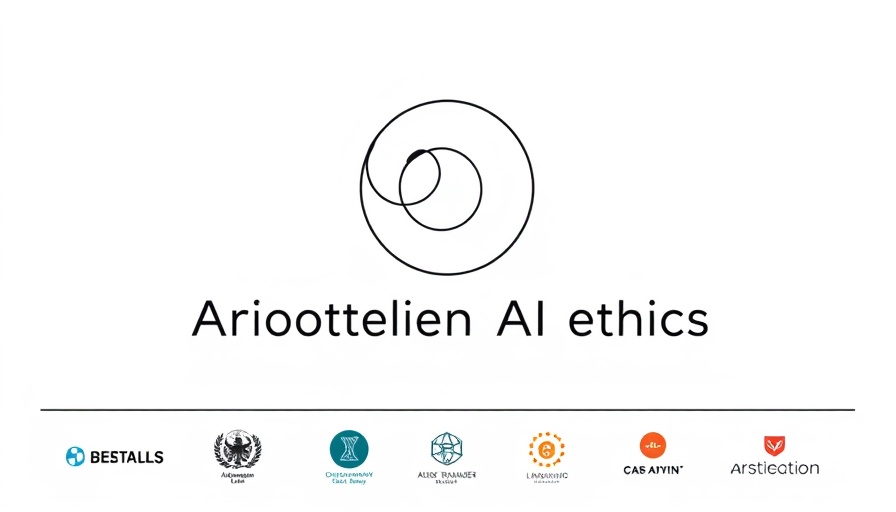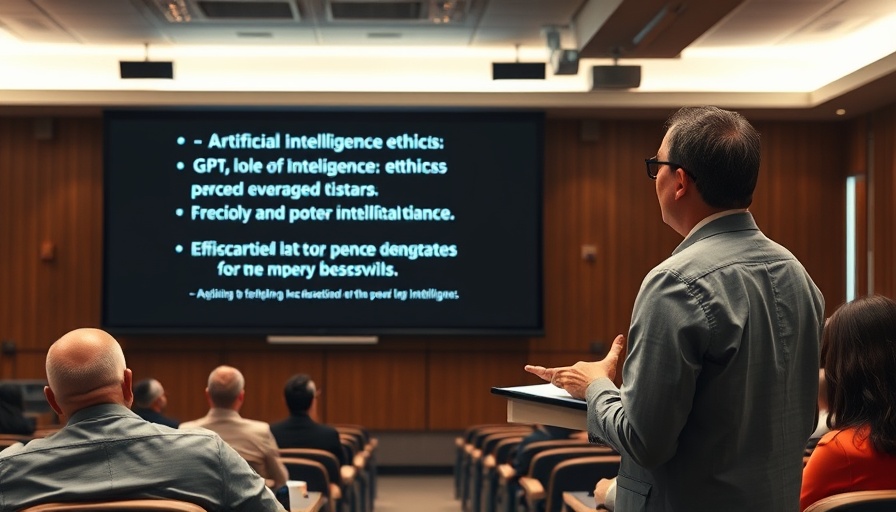
Understanding the Ethics of AI Design: Two Critical Mistakes
In the recent Ethics in AI Colloquium featuring Professor Ruth Chang from the University of Oxford, a compelling discussion took place regarding the ethical frameworks that underpin artificial intelligence (AI) systems. As AI technologies increasingly influence our daily lives, from smart home devices to complex data-processing algorithms, addressing the ethical implications of AI design has become paramount.
In 'Ethics in AI Colloquium - Two Mistakes in AI Design? with Prof Ruth Chang', the discussion dives into critical insights regarding AI design ethics, that sparked deeper analysis on our end.
What Are the Current Shortcomings in AI Design?
Professor Chang elaborated on four clusters of prevailing issues in AI design, notably in the realms of learning, reasoning, safety, and value alignment. A significant concern is the inability of AI systems to generalize knowledge or exhibit common sense. Today, most AI models, including large language models, struggle with understanding nuances like sarcasm or the sociocultural context of language.
Moreover, reasoning capabilities of AI systems remain unsophisticated; they often rely on probabilities rather than causal relationships, potentially leading to flawed outcomes. This raises ethical questions about the control we have over such systems—issues that have become particularly pertinent as AI applications expand into sectors like healthcare and finance.
The Vital Importance of Value Alignment
Among the challenges identified, the alignment of AI systems with human values stands out as foundational. Machine design that neglects this alignment risks producing outcomes that do not align with moral judgments or societal ethics. This misalignment can lead to catastrophic decisions in areas where ethical considerations are crucial.
As Chang states, achieving correct value alignment is not just an ideal but a prerequisite for resolving other AI issues, such as learning efficacy and reasoning accuracy. To ensure AI systems contribute positively to human experiences, designers must build frameworks that prioritize moral considerations over purely technical specifications.
Investigating the Mistakes in AI Value Design
Professor Chang argues that there are two critical flaws embedded in the current AI systems regarding how they handle human values:
- The Covering Problem: This issue arises when AI systems attempt to achieve evaluative goals using non-evaluative proxies. For instance, an AI hiring algorithm might prioritize candidates based on past data rather than qualitative attributes like teamwork or creativity.
- The Tradeoff Problem: This involves the misunderstanding of the valuation structure in AI decision-making processes. Current AI models often reduce complex decisions to dichotomies—assessing whether one option is better than another—without considering scenarios where options may be on par with one another.
The Parody Model: A Solution Among Mistakes
In response to these identified flaws, Professor Chang introduced the Parody Model, which is firmly rooted in a values-based approach to AI design. This involves processing data in ways that capture complex human values, allowing for nuanced comparisons rather than binary assessments. By facilitating a framework where AI understands hard choices—decisions where options are on par—such systems can align more closely with human experiences and values.
With this model, AI can embody commitments that reflect normative ideals rather than simply complying with existing data patterns. This acknowledgment of the complexity of human decision-making introduces a radical shift in how we conceptualize AI ethics and its impact on social structures.
Implications for Business Owners and Technologists
As business leaders and technologists consider implementing AI systems, they must remain acutely aware of the ethical implications of their designs. Engaging with models like the Parody Model can help ensure that AI technologies do more than meet efficiency and profitability benchmarks; they should promote societal values and foster positive human interactions.
Such an approach also beckons collaboration between philosophers, AI developers, and ethicists to address these pressing challenges in a meaningful way, ensuring that AI evolves in ways that enhance the quality of life rather than detract from it.
The Future of AI Ethics: Call to Action
The discussions in the Ethics in AI Colloquium illuminated substantial opportunities for improving AI design. It is imperative for stakeholders at every level to engage in these conversations about ethics. By advocating for value-aligned AI systems, we can shape a future where technological advancements reflect our deepest shared values. For those in technology and business, harness this opportunity to influence the direction of AI by integrating ethical frameworks that support human flourishing.
 Add Row
Add Row  Add
Add 




 Add Row
Add Row  Add
Add 

Write A Comment